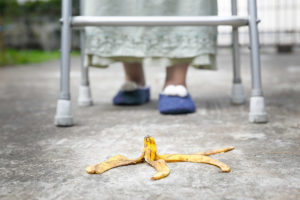Can Your Own Negligence Bar Recovery from Another Responsible Party?
 In a personal injury lawsuit, one of the key requirements to recover damages is showing who caused the accident. The allocation of responsibility establishes who will pay damages for the losses suffered. That allocation also can play a factor in the amount of money the injured person receives because the court can reduce the damage award in situations where the injured party’s carelessness partially caused the accident.
In a personal injury lawsuit, one of the key requirements to recover damages is showing who caused the accident. The allocation of responsibility establishes who will pay damages for the losses suffered. That allocation also can play a factor in the amount of money the injured person receives because the court can reduce the damage award in situations where the injured party’s carelessness partially caused the accident.
As the law of negligence evolved over centuries, the principle of contributory negligence was applied. Under the doctrine of contributory negligence, if the injured person was negligent in any respect, and that negligent was a contributing cause of the accident, then there could be no financial recovery. Unfortunately, this led to abuse. Defense attorneys looked for any instance of carelessness that could be used to deny recovery. As a result, an insignificant act of carelessness could prevent recovery from a grossly negligent defendant.
Because of the perceived unfairness of the contributory negligence approach, all states now follow the concept of comparative negligence. Under comparative negligence, the court looks at the injured party’s total losses, determines the degree to which the injured party was responsible, and then proportionally reduces the damage award.
There are, however, two different approaches to comparative negligence:
- Pure comparative negligence—In a pure comparative negligence state, the plaintiff will always receive something, unless the jury holds the plaintiff to be 100% responsible. For example, if the total damages are $100,000, and the plaintiff is 75% responsible, there will still be a damage award of $25,000.
- Modified comparative negligence—In states that apply this standard (such as Pennsylvania), the plaintiff’s responsibility must fall below a certain threshold—typically 50%. If the injured party’s liability is above that point, there is no recovery.
Contact Barnard, Mezzanotte, Pinnie & Seelaus, LLP
At Barnard, Mezzanotte, Pinnie & Seelaus, LLP, we have protected the rights of personal injury victims in Pennsylvania since 1980. We offer a free initial consultation. To schedule an appointment, call us at 610-565-4055 or 302-594-4535 or contact us online.
Personal Service | Dedicated Advocacy | Cutting-edge Technology

